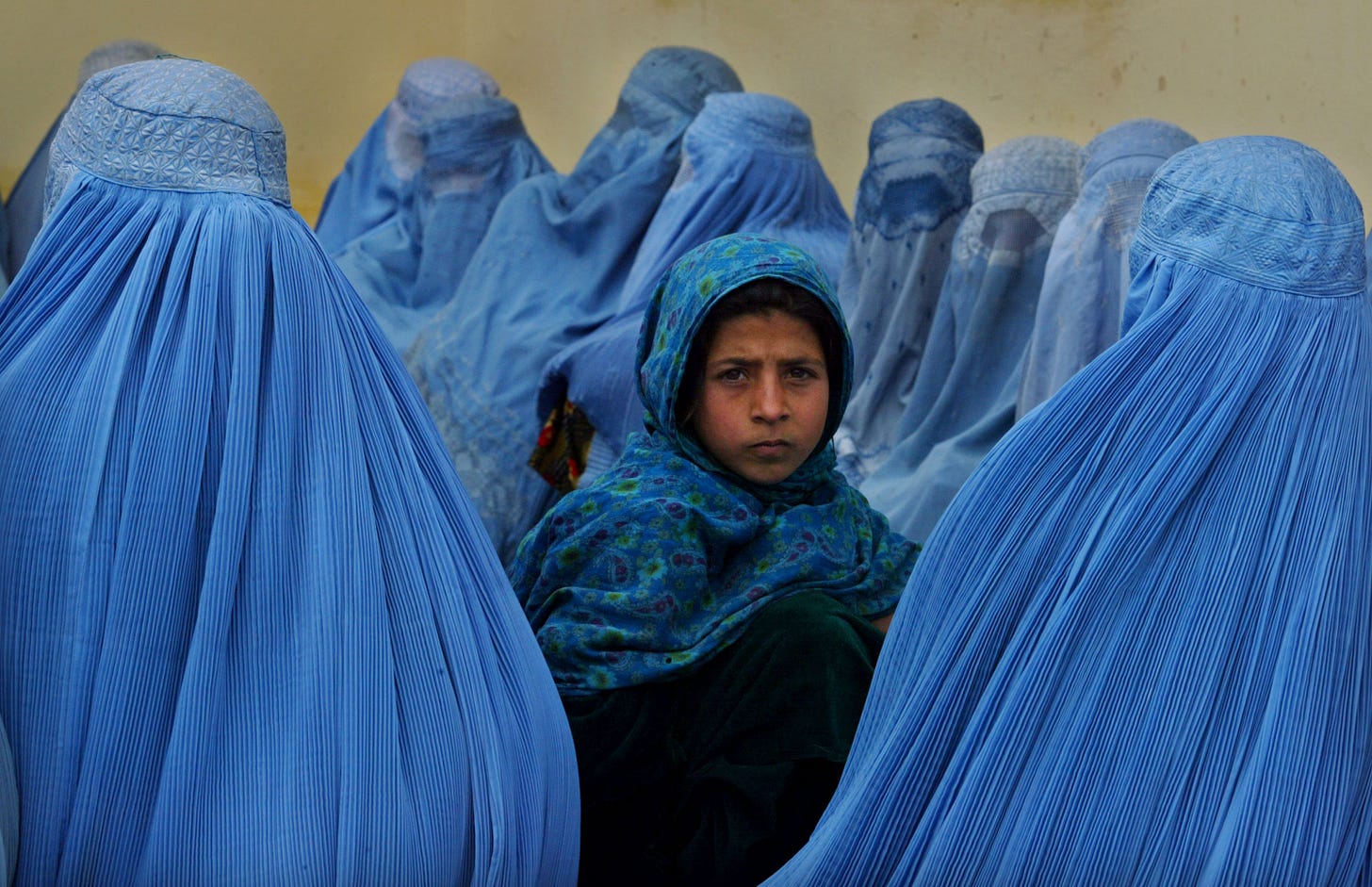
The Afghans Who Helped Us Need Our Help Now
The Afghans who supported American military, intelligence, and aid agencies deserve special immigration visas.

Between the idea And the reality Between the motion And the act Falls the Shadow —T.S. Eliot
Americans are tired of war and Afghanistan proved difficult to transform, so we are leaving—sooner even than the September 11 deadline President Biden promised in his speech to Congress. We are abandoning girls and women—half the population—to the whims of the Taliban, who will deny them education and force religious, personal, social and political submission, essentially enslaving them in a system that sees them primarily as temptresses and chattel.
But beyond the general Afghan population, we are also leaving behind thousands of Afghans who worked beside us during our 20-year fight. Some 18,000 have applied for Special Immigration Visas (SIVs), a program created in 2006 specifically for Iraqis and Afghans who helped the U.S. as interpreters and translators in those countries but are caught in the immigration backlog. The Truman Center reports that some 70,000 Afghans are in the process of applying for visas for themselves and family members. These are all people who may be arrested, tortured, even killed once the last U.S. and allied forces leave Afghanistan.
We have seen this movie before. One of the most ignominious images in U.S. history is the fall of Saigon on April 30, 1975, when thousands of South Vietnamese attempted to board American helicopters and planes as the city fell to North Vietnamese and Viet Cong forces. We evacuated some 125,000 Vietnamese immediately after the war, but abandoned hundreds of thousands of others who had fought and worked with us for more than a decade. Many ended up in communist re-education camps, where they endured torture, starved, and died. The communists also launched an ethnic cleansing program to drive out ethnic Chinese, depriving them of their businesses and forcing them to pay large fees to migrate. Rural Vietnamese along the border with Cambodia were also forced to flee after Vietnamese troops invaded Cambodia in 1978, ostensibly to drive out the genocidal leader of that country, Pol Pot, who had killed an estimated 2 million Cambodians. The Vietnamese forces succeeded in forcing Pol Pot to flee, but Vietnamese troops remained entrenched in a guerilla war with the Khmer Rouge in Cambodia for another 10 years.
The years following America’s withdrawal from Vietnam saw continued fighting, political and religious oppression and poverty that led an estimated 1.5 million people to flee the country, often in small boats, where they were victims of pirates or drowning in rough seas. The United States ultimately took in more than 500,000 Vietnamese refugees between 1975 and 1990, including some 26,000 who were children of American service men born to Vietnamese mothers. It took us decades to realize that we had responsibilities toward these people, but eventually we saved many.
The United States’s retreat from Afghanistan will likely result in similar humanitarian crises to those we saw in Vietnam. But as dangerous and difficult as it was for Vietnamese to escape their country after American troops left, the obstacles to Afghans who want to leave will be greater. Landlocked and surrounded by inhospitable if not downright hostile countries, Afghans who supported the United States will find no refuge or safe passage in Iran, Pakistan, Uzbekistan, Turkmenistan, Tajikistan, or China if they’re able to cross their country’s borders. Either we help them leave Afghanistan when our troops leave or they will become scapegoats for the Taliban and, perhaps, even ISIS.
So, what can be done?
First, the administration must devise and implement a plan to evacuate those Afghans awaiting SIVs, just as the United States has done in previous conflicts, including Vietnam, Iraq, and Kosovo. The bipartisan Council on National Security and Immigration last week sent a letter to President Biden calling on the administration to evacuate the 18,000 SIV applicants and their families to a safe location while their applications are processed, provide the necessary funding to relieve the existing backlog in applications, and provide for remote processing of SIV applicants after American troops leave. The Council acknowledged,
this will be a complicated undertaking, requiring extensive resources and bureaucratic coordination in a challenging environment. But time is limited. We believe it is a moral imperative to move as quickly as possible to protect the lives of the Afghan nationals who have sacrificed alongside our American servicemembers and government officials. We urge your administration to take action expeditiously and have evacuation plans underway no later than July 4, 2021.
Second, the administration should ask that Congress authorize additional SIVs, commensurate with the population of eligible persons and their families that exceeds the current pool of applicants. The Afghans who would gain entry to the United States are by and large educated and English-speaking and have demonstrated their loyalty to the United States through years of dangerous work for our military, intelligence, and aid agencies. We would not only be helping them but would enrich our nation, as we did with the hundreds of thousands of Vietnamese refugees, whose education levels surpass those of the U.S. population overall and whose median household income in 2019 was $69,800—substantially above other Americans.
If we fail to do this now, how can we ever again be trusted by those whose help we may need in the future? If the price of helping America is to risk not only one’s own life but that of family members as well, how many will be by our side when we need their help? We have a moral duty to remember those who risked their lives in our cause, but doing so is also a prudent measure to ensure we will have allies in our next fight.










